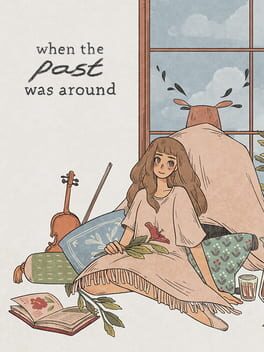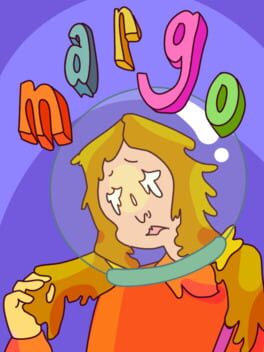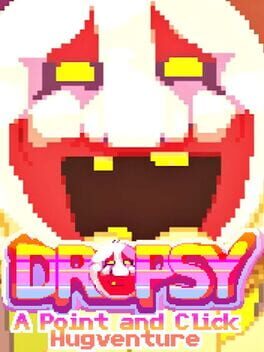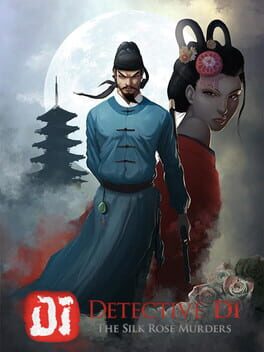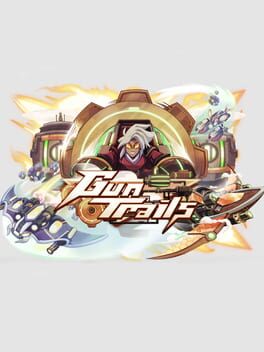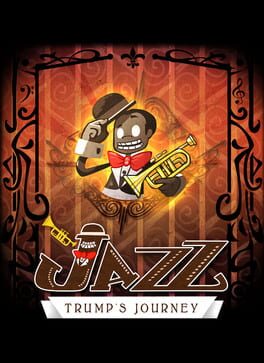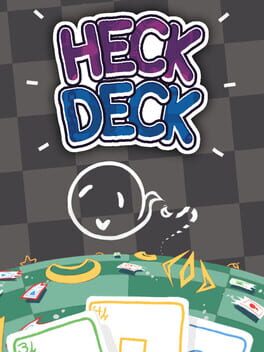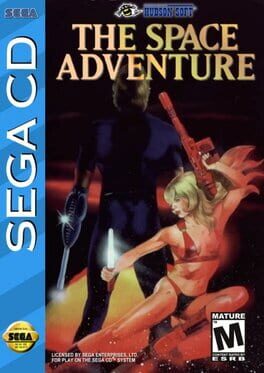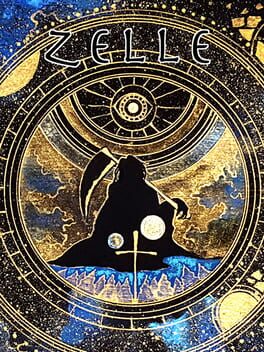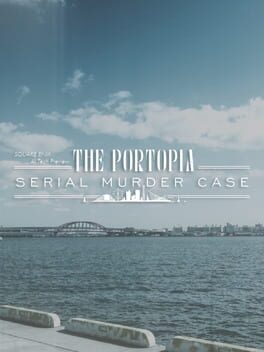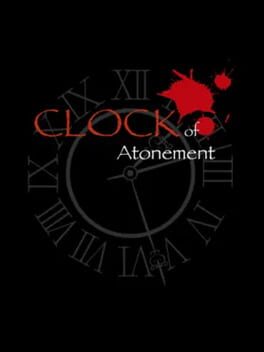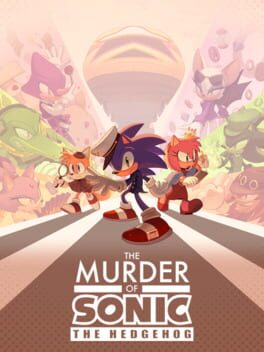oolongstains
Sweet little game. Story's a bit light and hits a number of the cliches of the format, but the art and environment communicates it well.
It's interesting having played this right after Margo; they both want to be experiential adventure games with a focus on their story, but this one's more honest about being an escape room game where you're required to solve specific puzzles to progress. It works better.
It's interesting having played this right after Margo; they both want to be experiential adventure games with a focus on their story, but this one's more honest about being an escape room game where you're required to solve specific puzzles to progress. It works better.
2020
I have a soft spot for dense satire about something I don't know much about, and this is definitely that. The mix of "Papers Please" bureaucracy and life sim gives them lots of room to have fun with the satire, and there's already plenty of branching options within this one-week demo. It's paced well, too; I appreciate how the first day makes it painlessly easy to be honest, only to start to introduce home expenses you can't quite stretch on your starting salary to tempt you into just a little bit of corruption. As a treat.
It's too bad this didn't end up getting developed past the early access demo, because I think they were on to something fun.
It's too bad this didn't end up getting developed past the early access demo, because I think they were on to something fun.
2022
Pretty cute little slice of life. Lovely art, and the understated storytelling works pretty well. Always enjoy clicking random things to see what happens.
It's a bit too focused on requiring you to do things to progress for something that's not really a puzzle game. When it doesn't really communicate expectations, blocking progress to the next screen because the player didn't click the right things in the right order feels pretty strange and counter to the feel of the rest of the game. It would be better as more of a pure interactive storybook without halfway puzzles.
It's a bit too focused on requiring you to do things to progress for something that's not really a puzzle game. When it doesn't really communicate expectations, blocking progress to the next screen because the player didn't click the right things in the right order feels pretty strange and counter to the feel of the rest of the game. It would be better as more of a pure interactive storybook without halfway puzzles.
2015
What a lovely little game. Orienting pretty much every puzzle around "how do I hug this person" is such an inspired choice, really gets you into Dropsy's mindset. Having the community slowly get nicer and happier around you feels great as the story goes on, and making the whole thing a mid-sized nonlinear open world really let me develop an intimate sense of the space it takes place in.
This is a solidly "okay" adventure game. The plot is reasonably fun, with a couple interesting cases, but the overarching drama that's meant to tie it all together doesn't really land. It feels more like there are just a series of events, and some exposition, without a real sense of tension or dramatic revelation.
The puzzles are mostly just okay, and some of the sillier non-inventory puzzles actively felt like they were pulling me out of the detection mindset.
The puzzles are mostly just okay, and some of the sillier non-inventory puzzles actively felt like they were pulling me out of the detection mindset.
2023
I really wanted to like this, but it ended up being a pretty big disappointment.
The art and music are great - it feels like aesthetics were their major focus. Playability suffers a lot though. The focus on detailed sprites means your ship and enemies are enormous despite the small screen, which gives you very little space to maneuver. It's even worse because your ship's speed is so fast; you want the ability to move slowly to dodge large waves of bullets, but you don't get that here. Since the screen is so crowded with large sprites enemies have a tendency to spawn out of nowhere, which makes it even more dangerous to move. It seems to be influenced by Cave games but doesn't really take into account that they make ship positioning a big part of gameplay - Gun Trails actively discourages you from moving around the screen or trying to stake out a position.
The super weapon feels like an attempt to do a take on Dodonpachi's hyper - a strong laser that does high damage, and that charges up as you maintain enemy combos. Unfortunately, the game intentionally takes away any stored charge when you encounter minibosses, which denies you the ability to use a stored up super weapon in exactly the time you'd want to use it. It's also the only way to slow down your ship's movement, which feels awkward and limited.
After playing I booted up GG Aleste again and it reminded me how other portable shmups on small screens have intentionally gone for smaller sprites to maintain maneuverability and the sense of a larger playfield. I found myself wishing Gun Trails had made the same choice.
The art and music are great - it feels like aesthetics were their major focus. Playability suffers a lot though. The focus on detailed sprites means your ship and enemies are enormous despite the small screen, which gives you very little space to maneuver. It's even worse because your ship's speed is so fast; you want the ability to move slowly to dodge large waves of bullets, but you don't get that here. Since the screen is so crowded with large sprites enemies have a tendency to spawn out of nowhere, which makes it even more dangerous to move. It seems to be influenced by Cave games but doesn't really take into account that they make ship positioning a big part of gameplay - Gun Trails actively discourages you from moving around the screen or trying to stake out a position.
The super weapon feels like an attempt to do a take on Dodonpachi's hyper - a strong laser that does high damage, and that charges up as you maintain enemy combos. Unfortunately, the game intentionally takes away any stored charge when you encounter minibosses, which denies you the ability to use a stored up super weapon in exactly the time you'd want to use it. It's also the only way to slow down your ship's movement, which feels awkward and limited.
After playing I booted up GG Aleste again and it reminded me how other portable shmups on small screens have intentionally gone for smaller sprites to maintain maneuverability and the sense of a larger playfield. I found myself wishing Gun Trails had made the same choice.
Perfectly medium platformer. Not great, not bad. You can tell this was made when Meat Boy and Braid were at their most popular - levels full of instakill spikes and walljumps, time control as core mechanic, etc. It's derivative enough nothing really stands out, but it works okay.
The music on the other hand is great. Maybe I should have expected it from a game called "Jazz", but they commissioned an original jazz score and got it performed by a live four-piece band. Every single level's theme is fantastic.
The music on the other hand is great. Maybe I should have expected it from a game called "Jazz", but they commissioned an original jazz score and got it performed by a live four-piece band. Every single level's theme is fantastic.
2022
"Shmup, but turn-based" is one of those ideas that could be either brilliant or terrible, and it's a huge amount of fun.
This is basically a turn-based card game shmup. Instead of always having weapons available, you build a hand of up to seven attacks by collecting them from enemies. Running into enemy bullets collects them into your hand while also doing damage to you, while defeating enemies by shooting them drops some health pickups.
In this case, "turn-based" means time only moves while you're moving; when you stop controlling your ship, time stops, so you can plan out your moves as carefully as you want. The strategic kind of movement you end up doing feels weird by shmup standards, but in a really fun way.
It plays around a bunch with the weird ergonomics of what it's doing, which is great. Your weird awkward turn radius means that dodging enemy bullets isn't quite as easy as you'd think even with all the time to plan it. You really do have to think ahead about how you'll be moving. Likewise, the fact that most bullets shoot whatever direction you're facing means that plotting out when and how you can safely shoot becomes a major part of gameplay. Since you have to take damage to collect attacks, it means you have to plan around your health carefully too. Health is basically just another currency you're obtaining and spending. It's a smart way to make you plan your resource management. Even the between-level shop takes health as a currency in exchange for cards.
Unfortunately the controller support is deeply broken - not totally unplayable, but with a huge number of softlocks that makes it hard to finish even a single run with a gamepad. The attack radius indicator is also just plain wrong for certain attacks if you're using a controller, which is weird, and makes learning about new card effects harder given that there's no explicit in-game tutorials - you're meant to learn by experimenting, which is harder if the game is implying the wrong thing about new cards. If you play computer games on your TV or if, like me, it's not convenient to play stuff with a mouse, I'd really recommend against playing this on Windows. Grab the mobile version instead.
This is basically a turn-based card game shmup. Instead of always having weapons available, you build a hand of up to seven attacks by collecting them from enemies. Running into enemy bullets collects them into your hand while also doing damage to you, while defeating enemies by shooting them drops some health pickups.
In this case, "turn-based" means time only moves while you're moving; when you stop controlling your ship, time stops, so you can plan out your moves as carefully as you want. The strategic kind of movement you end up doing feels weird by shmup standards, but in a really fun way.
It plays around a bunch with the weird ergonomics of what it's doing, which is great. Your weird awkward turn radius means that dodging enemy bullets isn't quite as easy as you'd think even with all the time to plan it. You really do have to think ahead about how you'll be moving. Likewise, the fact that most bullets shoot whatever direction you're facing means that plotting out when and how you can safely shoot becomes a major part of gameplay. Since you have to take damage to collect attacks, it means you have to plan around your health carefully too. Health is basically just another currency you're obtaining and spending. It's a smart way to make you plan your resource management. Even the between-level shop takes health as a currency in exchange for cards.
Unfortunately the controller support is deeply broken - not totally unplayable, but with a huge number of softlocks that makes it hard to finish even a single run with a gamepad. The attack radius indicator is also just plain wrong for certain attacks if you're using a controller, which is weird, and makes learning about new card effects harder given that there's no explicit in-game tutorials - you're meant to learn by experimenting, which is harder if the game is implying the wrong thing about new cards. If you play computer games on your TV or if, like me, it's not convenient to play stuff with a mouse, I'd really recommend against playing this on Windows. Grab the mobile version instead.
2022
Now this is what RPGs are all about.
What a great game. Managing to make each campaign so distinctive, so well-paced and interesting within their short runtime is incredible. Especially when they're so experimental and all going for such different things from each other.
The Far Future chapter is especially incredible, managing to pull off that kind of pacing without any combat at all in 1994 is so ambitious. Wonder if they'd played Ihatov Monogatari.
The new stuff from the remake is generally pretty great, but I felt like the radar was a bit too aggressive in making sure players never get lost. There are moments in the Far Future and Near Future chapters where the player should feel lost and stressed, and the radar is actively getting in the way of that by always telling you where your next step is.
What a great game. Managing to make each campaign so distinctive, so well-paced and interesting within their short runtime is incredible. Especially when they're so experimental and all going for such different things from each other.
The Far Future chapter is especially incredible, managing to pull off that kind of pacing without any combat at all in 1994 is so ambitious. Wonder if they'd played Ihatov Monogatari.
The new stuff from the remake is generally pretty great, but I felt like the radar was a bit too aggressive in making sure players never get lost. There are moments in the Far Future and Near Future chapters where the player should feel lost and stressed, and the radar is actively getting in the way of that by always telling you where your next step is.
1991
This game rules. The translation is so pulpy - feels like they 100% totally understood what 80s pulp manga is about and ran with it. It also doesn't feel embarassed about being anime at all, which honestly feels really surprising for 1995.
There's some rough parts, like the slow and annoying combat sequences, but nothing bad enough to drag it down.
There's some rough parts, like the slow and annoying combat sequences, but nothing bad enough to drag it down.
2019
Not quite what I was expecting, in a really good way. This is the first time I've seen someone try to hybridize CD-ROM first-person adventure gaming with RPG Maker-style adventures, and it honestly works surprisingly well. The decision to split out parts of the game world between gameplay styles ends up defining a really interesting sense of space.
The horror elements are a bit corny and not really scary, but the undercurrent of creepiness is actually pretty effective. The whole game has a mood that's really interesting.
This is one of the most obviously Undertale-inspired Japanese adventure games I've played, from the music to the combat to the staging. It doesn't feel overly derivative but that inspiration really colours the whole thing.
The horror elements are a bit corny and not really scary, but the undercurrent of creepiness is actually pretty effective. The whole game has a mood that's really interesting.
This is one of the most obviously Undertale-inspired Japanese adventure games I've played, from the music to the combat to the staging. It doesn't feel overly derivative but that inspiration really colours the whole thing.
0-star port of a really interesting piece of gaming history.
It takes a lot of skill to port an old text parser game and have it be worse than the original. The fuzzy matching means that sometimes it works and sometimes it doesn't, and it's incredibly hard to figure out how or why. A less intelligent parser like in the original would have been easier to work with because at least it's predictable, and you can develop an internal model of how to talk to the game. Here, you're constantly guessing.
As a game, Portopia has the loose style of storytelling that a lot of early computer mystery games did. Modern players might find it offputting, but it works well and it's easy to see why it was such a big deal in 1983. The ludicrous ending twist is hard for players to guess, in a bad way, but overall it still lands.
It takes a lot of skill to port an old text parser game and have it be worse than the original. The fuzzy matching means that sometimes it works and sometimes it doesn't, and it's incredibly hard to figure out how or why. A less intelligent parser like in the original would have been easier to work with because at least it's predictable, and you can develop an internal model of how to talk to the game. Here, you're constantly guessing.
As a game, Portopia has the loose style of storytelling that a lot of early computer mystery games did. Modern players might find it offputting, but it works well and it's easy to see why it was such a big deal in 1983. The ludicrous ending twist is hard for players to guess, in a bad way, but overall it still lands.
2022
2017
This tries to take itself seriously, but the very thin characterization takes a lot away from it. The dark "you're a stalker murdering a woman" plot needs a more nuanced set of characters to really work, but no one here is anything more than a loose stereotype. The after story that tries to give the main character a redemption arc is even weaker.
This... didn't have to be good? I'm genuinely surprised this is pretty fun.
Obviously it's not a deep mystery game - you're carefully railroaded with limited exploration and limited amounts of evidence, so you're not having to think too hard. But the moment-to-moment character writing is pretty fun. It feels like an issue of the comic, in a good way.
The action minigame is a bit perfunctory; feels like they needed something to extend the interrogations even though the game doesn't have enough room for genuine leaps of logic. It's not bad, but it shows up just a few more times than it really needs to.
Obviously it's not a deep mystery game - you're carefully railroaded with limited exploration and limited amounts of evidence, so you're not having to think too hard. But the moment-to-moment character writing is pretty fun. It feels like an issue of the comic, in a good way.
The action minigame is a bit perfunctory; feels like they needed something to extend the interrogations even though the game doesn't have enough room for genuine leaps of logic. It's not bad, but it shows up just a few more times than it really needs to.
